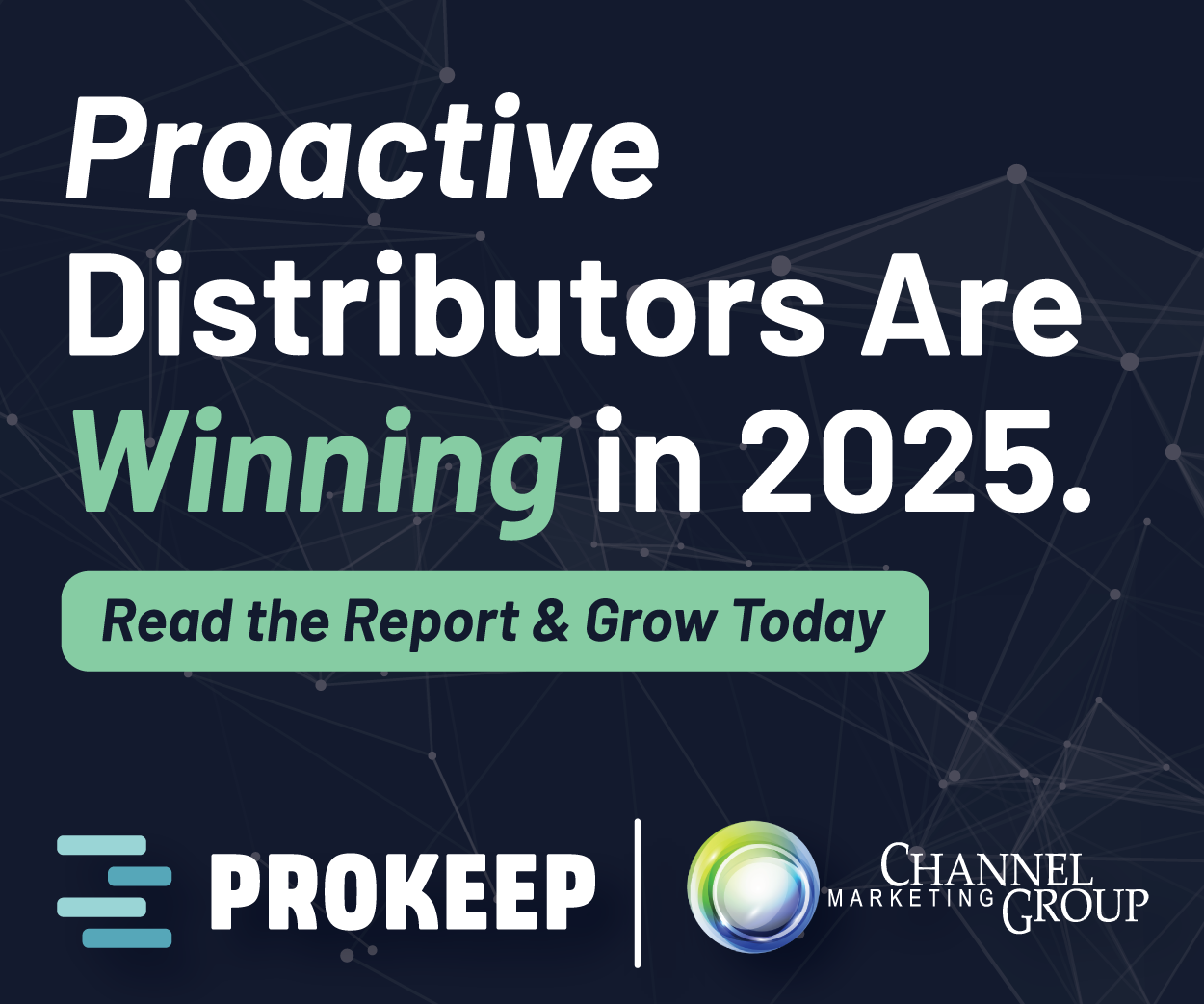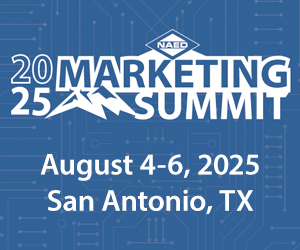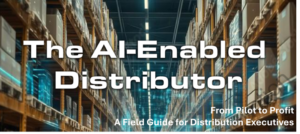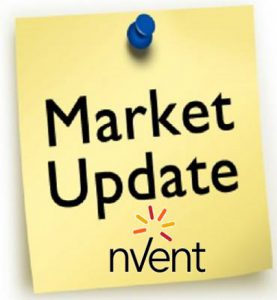Today’s Electrical Recruitment Environment – Research Findings
 Staffing has been one of the biggest challenges for manufacturers, reps, and distributors for the past few years. Not only did the pandemic make a number of people consider “work alternatives” but the growth that has since occurred in the industry drove the need for more people. This creates recruitment challenges for companies.
Staffing has been one of the biggest challenges for manufacturers, reps, and distributors for the past few years. Not only did the pandemic make a number of people consider “work alternatives” but the growth that has since occurred in the industry drove the need for more people. This creates recruitment challenges for companies.
And the electrical industry suffers some embedded challenges:
- Most companies only want to hire “qualified” people, however, the definition of “qualified” is “industry experience.”
- And then everyone only wants “the good people, not the person who has worked for everyone else already in the market.” In other words, everyone wants an A player (okay, they’ll settle for a B player thinking that they can change them into an A player), but they don’t want C players. Understandable.
- Training? That is for other industries. It is the progressive company that is willing to hire recent college grads, early career people and others from outside the industry and train them.
- Speaking of recent college grads, let’s expand “early career” to “people who are not familiar with the electrical industry or who think it is ‘boring’”. Given many of the new roles that have been emerging in the industry, much staffing growth is to support company growth and new roles. Companies are seeking talent to support warehouse operations / supply chain / logistics, IT, eCommerce, digital marketing, data management, data analytics, they need more engineers and similar. Plus, there is a need for more salespeople.
What this comes down to is everyone wants more talent. No longer is a “warm body” acceptable.
And the price for talent continues to go up. The “price” can be financial expectations (because the competitive pool is much larger … not just the electrical industry), candidate / employee non-financial expectations (WFH, work/life balance, expectations of company culture, etc.) and other the fact that the unemployment rate is low, and the experience rate is lower!
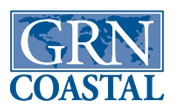 With this as a background, Channel Marketing Group recently conducted research for GRN Coastal, a leading sales and executive search recruiting firm that has extensive experience in the electrical industry. Its principal, John Salvadore, over the years worked for Eaton, All-Phase (now CED), AD, SourceAlliance (a Rockwell initiative), Vanguard National Alliance (now SupplyForce), and Horizon Solutions (now Rexel) before starting GRN Coastal. From his background you can see he “knows the industry because he comes from the industry.”
With this as a background, Channel Marketing Group recently conducted research for GRN Coastal, a leading sales and executive search recruiting firm that has extensive experience in the electrical industry. Its principal, John Salvadore, over the years worked for Eaton, All-Phase (now CED), AD, SourceAlliance (a Rockwell initiative), Vanguard National Alliance (now SupplyForce), and Horizon Solutions (now Rexel) before starting GRN Coastal. From his background you can see he “knows the industry because he comes from the industry.”
The research focused on trends in today’s recruiting market. We surveyed employees / candidates and HR / management. The results, which are available in this report, via Channel Marketing Group or by emailing John, highlight some “disconnects” between candidates, employees and management.
John shares an overview of the findings.
Trends in Today’s Recruiting Market
“Earlier this spring GRN Coastal conducted a distribution employment survey. We commissioned Channel Marketing Group, to gather insights from the electrical, plumbing, HVAC and similar industries. We wanted to know what you (active candidates, those “happily employed” and hiring managers) were thinking.
The findings validated many trends we have seen in our real-world recruitment experiences to date and revealed some surprising insights.
I’ll highlight some of them here.
- Employer’s biggest challenges – Frustration finding talent in general and then finding qualified (read “experienced”) candidates via online ads.
- Remote work: Data shows candidates are leaning towards hybrid and work from home more so than employers. This could create potential conflict in which employers want and expect employees to return to more of a pre Covid work from office mentality while employees are comfortable with hybrid and work from home. These conflicting views may present a battle in the very near future.
- It is a Candidates market. It is a candidate dominated market where top talent has choices and lots of opportunity to increase income and determine their ideal Candidates want flexibility to decide how they work, where they work and for how much. They want to have a work environment driven by empowerment, trust, and challenge. Employee happiness is becoming more and more important to if that employee stays or ventures out into the market. The economy is also making candidates think twice about making a move. With so much uncertainty, maybe riding the wave is better than jumping into unchartered waters. Interestingly, a significant percent would leave their role for a lateral position at comparable pay … indicating dissatisfaction in their work environment
- Employers view of the market is that they are still the destination of choice and don’t need to change much. Candidates, on the other hand, see the changes that Covid generated, are thinking differently and recognize that there is a shortage of talent in the market (all they have to do is listen to the economic reports.) Leading HR departments are recognizing that they need to market their company to remain the “destination of choice.” Retirements make up 25% of job openings. There is a question as to if companies have adequate bench strength to insert an existing employer into the unoccupied role. 40% of recruitment is for new roles to support the growth of the business. This is opportunities for traditional roles (i.e., sales, branch management, etc.) as well as new roles (eCommerce, digital marketing, analytics, services, engineers.)
- Interview Timeline / Process. Speed counts. Candidates know the market is thin and expect quick decisions for lower-level roles. Those for higher level roles recognize it may take longer but may not wait for your process. The hiring process gives a candidate insight into the company and its people. Is it an action-oriented, decisive company or a consensus, methodical company that has difficulty assembling people and making decisions?
- Compensation: Candidates are looking for 15-20% raises and employers are looking to give 10%. This disparity is making candidates turn down offers more than ever. It’s an issue of “supply and demand” and candidates know it.
- Candidates’ desires: The phrase “people don’t leave companies, they leave bosses” is true. Candidates want a caring and compassionate boss that understands their needs outside of work. The desire a collaborative, ethical and rewarding workplace. They want work / life balance, and need benefits on day 1 and want extra time off. Candidates seek a growth environment which has a supportive boss that has a job progression roadmap, training opportunities, coaching, and mentoring. They need to believe that they are being compensated at their true market value. Employer’s feel that their culture, providing a good work/life balance and growth makes their companies attractive.
- Why makes a change? While money is important to many, , a lot depends on their boss and their relationship with him or her. Most of the time (25%), they leave for more money and growth opportunity (15%), but their leadership/boss is 10%.
- Job introduction techniques: Candidates prefer the personal touch. Whether it is an internal recruiter from your company or a hired recruiter, they want to talk to someone about the company, culture, and role. Companies that rely on “spray and pray” are not getting candidate responses.
- Skill based hiring is becoming more and more important as companies look for candidates that can make an immediate impact based on their inherent skillset .
- Cultural impact – we ask candidates to share 5 words that describe the culture they want an hiring managers to share 5 words to define their culture. While companies promote that they are team-oriented, and candidates want a team-oriented environment, they are more focused on being recognized for performance. Issues of sustainability, community and inclusiveness were down the list, in aggregate. The takeaway is “it is different for everyone.”
- Summary: We feel strongly about this being a candidate’s market and companies need to really tighten up their recruitment efforts. Just as you are evaluating the candidate, they are evaluating your company. Be more proactive and welcoming. Be a destination of choice based on today’s market and not your past. You need to adapt to changing times. Covid has changed the workplace dynamics, code of conduct and the companies that adapt will win the top talent and those that don’t are at risk of having a talent drain.”
Takeaways
The report (click here to download) has much more information.
- Some companies are progressive and recognize that they need to “sell” their company to acquire the talent that they want. Others are reactive and willing to accept second best.
- Retention is key but, to retain, companies need to be honest about their culture.
- People leave due to not being recognized / valued for their efforts by their boss and their company. Again, culture matters.
- Companies that don’t recognize that compensation has evolved, and they need to be competitive in their market will lose. Consider this, as an example, companies are competing for warehouse people versus Amazon (and other eCommerce companies). What are they paying? $20+ / hour!
- Since COVID, the employees feel “empowered” to ask, perhaps expect, different things. Sometimes it is accommodations, sometimes it is common sense / decency. They expect more tolerance. The work from home mindset has permeated more than the desire to work from home. The result? How does this affect your culture? Your management style.
- To recruit talent takes time and talent. Top talent expects to be recruited. They are not on Indeed looking for a job. They are “free agents” and yes, have representation (or can find it). As a company wanting top talent, leading companies are finding those who can deliver top talent (either through relationships via internal staff, networking or using recruiters.)
And, while companies have HR departments, yesterday’s HR manager may not have the skill sets to be today (or tomorrow’s) “people performance manager” (someone who is responsible for being “in touch” with your team, helping guide cultural development, understands the market AND be responsible for the HR administration responsibilities.) HR Managers are being spread too thin to be experts in every element of “people” (recruitment, training, development, retention, and benefits).
Click here if you want the Understanding Today’s Electrical Industry Recruitment Report.
If you want to discuss the research further, reach out to John Salvadore, Managing Partner, GRN Coastal or David Gordon, Channel Marketing Group.
GRN Coastal can assist with manufacturer, distributor, and rep recruitment needs.
Channel Marketing Group can assist with internal marketing initiatives and employee satisfaction research.









